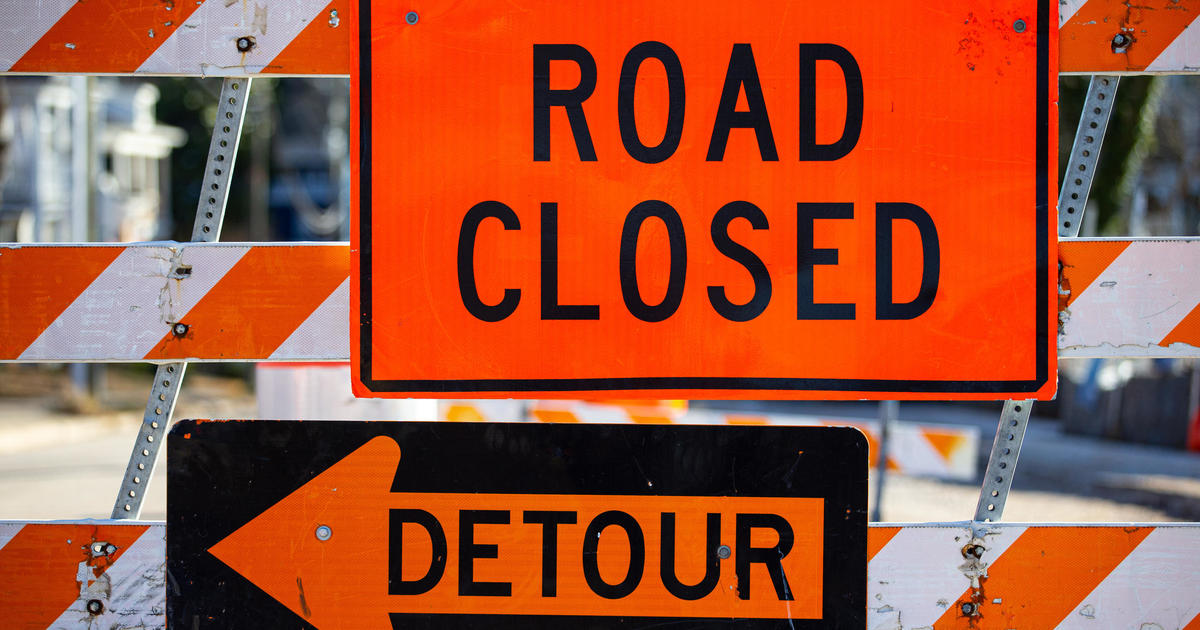Terri Lynn Land, Gary Peters Spar Over Her Plan To Slash Gas Tax
By David Eggert, Associated Press
LANSING (AP) - At a time Republicans are eyeing slight to significant state gasoline tax increases to improve Michigan's roads, their standard-bearer for U.S. Senate is instead calling for a big cut in the federal gas tax.
Terri Lynn Land says her new proposal to gradually reduce the 18-cents-a-gallon tax to 4 cents would "put Michigan first" by empowering the state with more say over how to maintain its transportation infrastructure. Yet given state lawmakers' inability to permanently devote more money for road and bridge upkeep, Land's plan is being doubted.
U.S. Rep. Gary Peters, her Democratic opponent, called it "irresponsible" and a "far right-wing idea."
"How does she expect the state Legislature to make up for $1 billion of federal money that no longer is available?" he said in a phone interview.
Peters said he opposes what he said would be two options at the state's disposal to replace the revenue: a significant state gas tax hike or toll roads.
Asked if it is realistic to put an additional onus on Lansing, Land said during a campaign stop in the Lansing area: "Obviously the system right now is not working. ... The roads are in bad shape and we haven't come up with a plan. So we need to allow the states to take that money, use it as they see fit."
She later said she trusts states to "know what's best for their communities."
Both Michigan, which has a 19-cent gas tax, and the federal government, which sends federal gas tax revenue to the state, face the same problem: fuel tax revenues are not keeping pace with government spending on transportation as cars become more fuel-efficient and people drive less. And the state is under increasing pressure to spend more as roads and bridges age.
On her campaign website, Land says she is not talking about cutting revenue but just keeping 15 cents a gallon in federal gas taxes closer to home. Her plan is similar to one proposed by tea party conservatives Sen. Mike Lee of Utah and Rep. Tom Graves of Iowa.
The idea is that by reducing Washington's middleman role, money would be saved through less "red tape" and bureaucracy. Land estimates savings of up to 20 percent.
There are skeptics, however.
Lance Binoniemi is vice president of government affairs for the Michigan Infrastructure & Transportation Association, a construction trade association lobbying the GOP-led Legislature to pass comprehensive road-funding legislation.
He credited Land for making road funding a priority and said there is some merit to letting the state control more of the money passed through from the U.S. government, pointing to dollars for bike lanes, walking trails and rest areas that could be spent on road pavement.
But "the bottom line is we need more money. And I don't know that her plan actually brings in more money," Binoniemi said.
He said there is no assurance that the Legislature would raise the state gas tax by an equivalent 15 cents to keep taxes at the pump the same. A lot of red tape was eliminated in the last federal transportation budget, he added.
"I don't know that there's hundreds of millions of dollars of savings if we just put all the money in the states' hands," Binoniemi said.
In late July, Congress gave final approval to a $10.8 billion bill to keep federal highway funds flowing to states through the summer construction season and the fall elections. The legislation includes enough money to fund highway and transit programs at promised levels through next May.
Congress has kept the highway trust fund teetering on the edge of bankruptcy since 2008 through a series of temporary fixes because lawmakers have been unable to find a politically acceptable long-term funding plan.
Peters, when asked if he supports calls to raise federal gas and diesel taxes, said he is backing legislation, co-sponsored by Democratic Rep. Sander Levin of Michigan, to prevent tax "inversions" in which U.S. companies merge with a foreign partner and reincorporate abroad to generate tax savings. The resulting revenue would go to the highway trust fund.
In unveiling her plan in late August, Land also launched a TV ad blaming Peters for Michigan's potholes and saying gas taxes have been "siphoned" off under his watch. Michigan, however, received $1.03 in highway funding for every $1 in federal gas taxes collected in the state in 2012, according to the Federal Highway Administration.
"That shows that her argument falls flat immediately," Peters said, adding that he thinks the government should be tougher with contractors who go over budget.
Supporters of Land's plan say the federal money still comes with strings attached, and local control is preferable. Republican Rep. Dave Camp of Michigan called it an innovative approach that would not raise taxes.
Copyright 2014 The Associated Press. All rights reserved. This material may not be published, broadcast, rewritten or redistributed.



